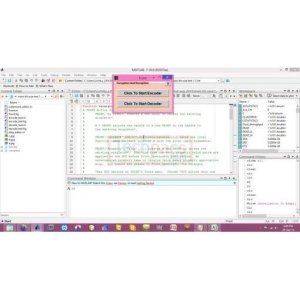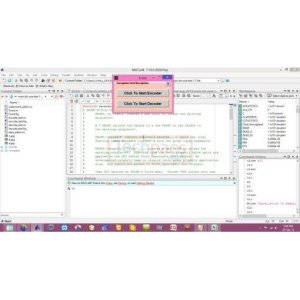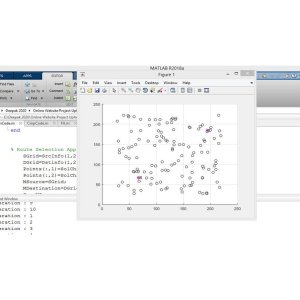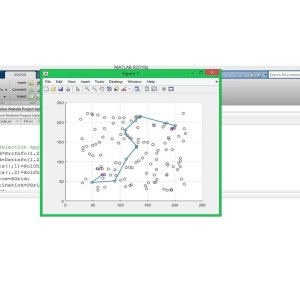Robust Cooperative Diversity MAC Protocol in Wireless Ad Hoc Networks
Problem Definition
Problem Description:
In wireless ad hoc networks, the interference caused by noisy and harsh environments often leads to unreliable communication links, resulting in poor network performance. The existing MAC protocols may not be able to effectively mitigate this interference and improve the robustness of the network.
There is a need for a cooperative diversity-based MAC protocol that can enhance the reliability of communication by allowing multiple terminals to transmit signals in a cooperative manner. This protocol should aim to reduce interference, increase packet delivery ratio, and minimize end-to-end delay in wireless ad hoc networks.
The proposed Cooperative Diversity MAC (CD-MAC) algorithm in this project addresses these issues by enabling terminals to select partners and transmit data simultaneously, thereby reducing interference and improving network performance.
By incorporating concepts from the IEEE 802.11 MAC protocol and utilizing reception models based on hardware specifications, CD-MAC has the potential to outperform traditional MAC protocols in terms of reliability and robustness in wireless ad hoc networks.
Proposed Work
The project titled "A Cooperative Diversity-Based Robust MAC Protocol in Wireless Ad Hoc Networks" focuses on addressing the issue of unreliable communication links caused by interference in wireless environments. The research explores the concept of cooperative communication, where multiple radio terminals collaborate to transmit signals, resulting in more reliable communication. The proposed medium access control (MAC) algorithm, known as Cooperative Diversity MAC (CD-MAC), aims to increase the robustness of wireless networks by reducing interference through simultaneous data transmission between partnered terminals. The CD-MAC algorithm is designed based on the IEEE 802.11 MAC and uses a reception model derived from the Intersil HFA3861B radio hardware, considering factors like Bit Error Rate (BER) and Frame Error Rate.
The evaluation of CD-MAC's performance in terms of packet delivery ratio and end-to-end delay demonstrates its superiority over the IEEE 802.11 MAC. This research falls under the categories of NS2 Based Thesis Projects and Wireless Research Based Projects, specifically within the subcategory of Computers Based Thesis. Software used for the project includes NS2 simulation tool.
Application Area for Industry
This project can be highly beneficial for various industrial sectors that rely on wireless ad hoc networks for communication, such as the manufacturing sector, transportation sector, and healthcare sector. In the manufacturing industry, where machines and equipment need to communicate seamlessly to ensure smooth operations, the CD-MAC protocol can enhance network reliability and reduce interference, leading to improved efficiency and production output. In the transportation sector, where vehicles and infrastructure require robust communication for safety and navigation purposes, the CD-MAC algorithm can help mitigate interference issues and ensure secure and reliable data transmission. In the healthcare industry, where wireless networks are utilized for patient monitoring and communication among medical devices, the CD-MAC protocol's ability to improve packet delivery ratio and minimize end-to-end delay can enhance the quality of healthcare services and ensure timely and accurate data transmission.
The proposed solutions offered by the CD-MAC algorithm can be applied within different industrial domains to address specific challenges faced by industries in terms of unreliable communication links and interference in wireless ad hoc networks.
By enabling cooperative diversity-based communication, the CD-MAC protocol can significantly improve network performance and reliability, ultimately leading to enhanced productivity, safety, and efficiency in various industrial sectors. Industries adopting this project's solutions can benefit from increased network robustness, reduced interference, improved packet delivery ratio, and minimized end-to-end delay, ultimately leading to smoother operations, better communication, and improved overall performance within their respective domains.
Application Area for Academics
The proposed project "A Cooperative Diversity-Based Robust MAC Protocol in Wireless Ad Hoc Networks" offers a valuable opportunity for MTech and PhD students to engage in innovative research methods, simulations, and data analysis in the field of wireless ad hoc networks. This project addresses the critical issue of unreliable communication links caused by interference in wireless environments, offering a solution through the development of the Cooperative Diversity MAC (CD-MAC) algorithm. By enabling terminals to select partners and transmit data simultaneously, CD-MAC aims to reduce interference, increase packet delivery ratio, and minimize end-to-end delay in wireless ad hoc networks. MTech and PhD students can utilize the code and literature of this project for their dissertation, thesis, or research papers in the domain of wireless communication and networking. The project specifically covers NS2 simulation tool and falls under the categories of NS2 Based Thesis Projects and Wireless Research Based Projects, making it relevant for students and researchers seeking to explore advanced MAC protocols and cooperative communication in wireless networks.
The potential applications of this project in pursuing research on network performance optimization and reliability enhancement make it a valuable resource for scholars aiming to contribute to the advancement of wireless communication technologies. Additionally, the project offers a reference for future research scope in developing more efficient and robust MAC protocols for wireless networks, highlighting the significance of cooperative diversity-based approaches in addressing interference challenges.
Keywords
Wireless communication, ad hoc networks, MAC protocol, cooperative diversity, CD-MAC algorithm, interference reduction, packet delivery ratio, end-to-end delay, network performance, reliability, robustness, IEEE 802.11, reception model, hardware specifications, NS2 simulation tool, WSN, Manet, Wimax.
| Shipping Cost |
|
No reviews found!




















































No comments found for this product. Be the first to comment!